Our Services
Midsomer Pet Club
Happy, healthy pets at Midsomer Vets
Join our Midsomer Pet Club today and give your pet life-long preventative care whilst saving money too!
As a member of our Midsomer Pet Club, you can be assured your pets will have access to the most effective preventative health care including vaccinations, flea, tick and worming treatments and a range of discounts on other services.
If you have a puppy or kitten, you might be interested in our Puppy & Kitten Starter Package
Give your pet life-long preventative care whilst saving money too!
Anaesthesia and Surgery
Should your pet require procedures or surgery under anaesthetic our experienced team are ready to help. We use multi-parameter monitors that enable us to continually monitor blood pressure, oxygen, carbon dioxide levels and more..
Our experienced vets can handle procedures from routine neutering to emergency abdominal surgery. We also have visiting advanced practitioners and specialists to help us with complex procedures such as orthopaedic surgery.
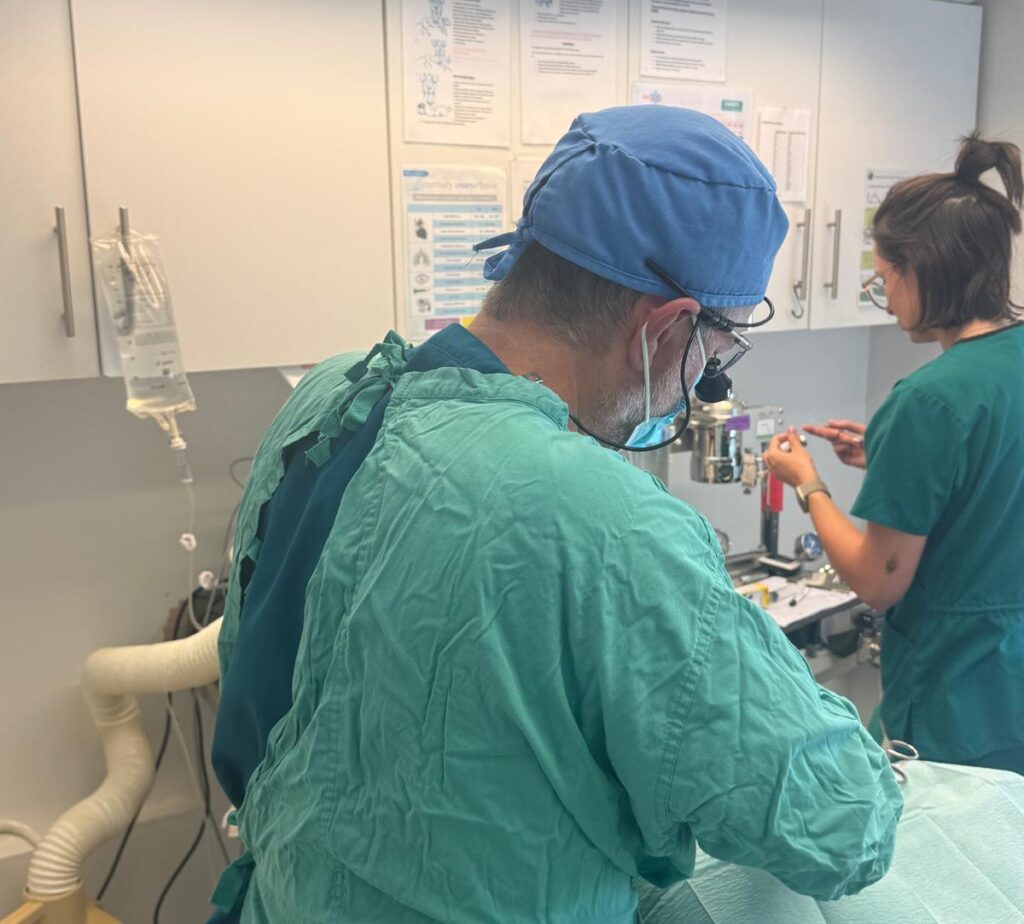
Save 20% on neutering
Pet dental care with a difference
80% of cats and dogs develop some form of dental disease by the age of just three. In the past the significance of may not have been realised and pets can live with dental pain without it being noticed.
Early prevention by good dental hygiene, such as brushing teeth, can help to avoid disease but tartar accumulation inevitably leads to issues in later life so regular checks and descaling, polishing and full assessment under anaesthesia helps us to keep your pet’s mouths happy and pain free. To help you budget we have introduced fixed price descaling and assessment
Painful conditions such as feline resorptive lesions and broken roots may not be obvious but dental X-rays reveal hidden disease allowing the best treatment for your pets.
We are experienced at both standard and surgical extraction techniques including nerve blocks and have invested in the newest instruments to get your pet comfortable as soon as possible.
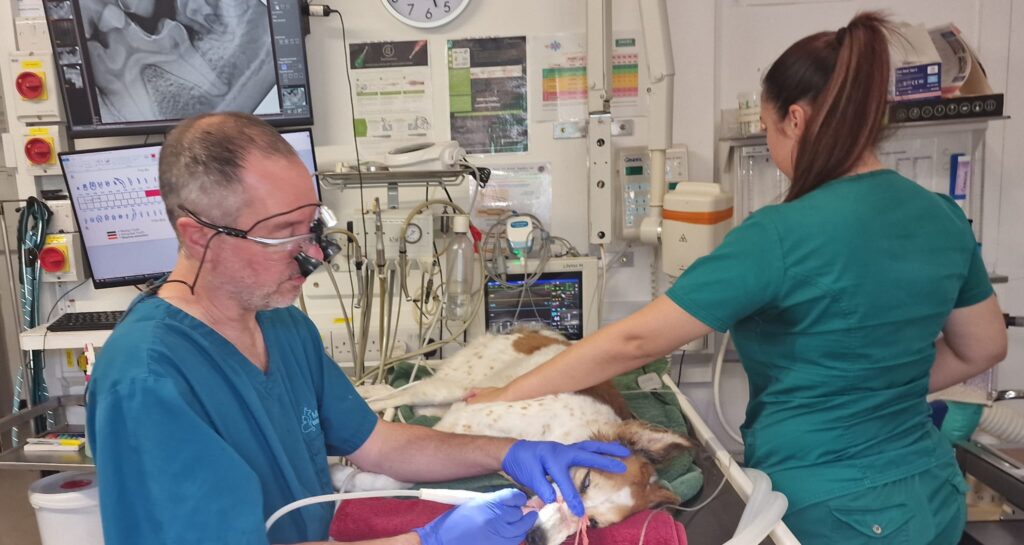
Get up to 20% off in-house dental treatment
In-house laboratory
Our in-house laboratory allows us to rapidly process blood samples, assessing organ function and blood cells within minutes.
Microscope examinations are used for urine, skin and ear examinations and we can perform cultures to check for bacterial infections and select the most appropriate antibiotics.
Some samples do need to be sent to outside laboratories and we have courier collections overnight so that samples can arrive at the laboratory the next morning.
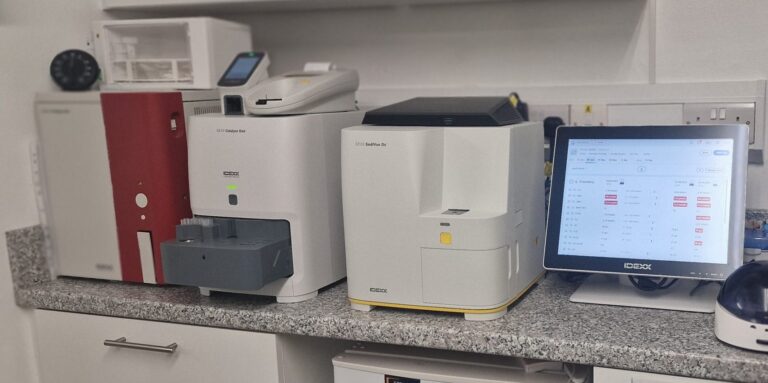
Midsomer Pet Club members receive annual urine screening
Ultrasound, X-ray and endoscopy
We use a variety of methods to investigate your pet’s health.
Ultrasound allows you to look inside your pet’s organs to assess organ size, structure, and heart function. We have recently upgraded our ultrasound to give us fantastic image quality and assess your pet better than ever before.
Digital X-rays, including dental radiography, help us assess organ size, bone structure and monitor the response to treatment.
Endoscopy allows us to look inside the intestinal tract without the need for exploratory surgery to identify the problem area, take a sample or remove foreign bodies.
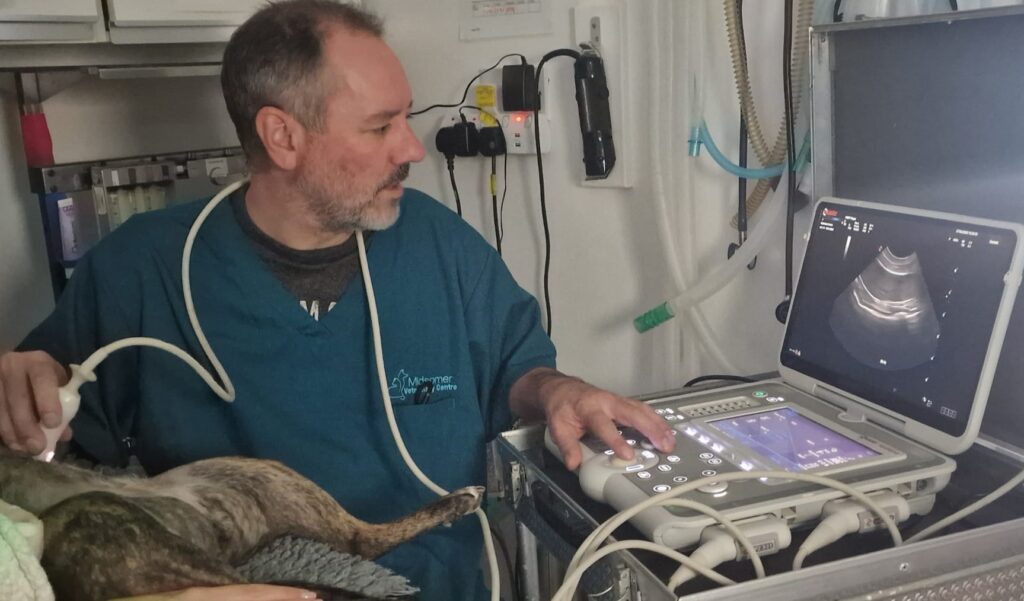
Nurse Clinics
We are always happy to help with any of your pet’s needs and our nurses work alongside our vets to support you at all times.
From nail clipping and tick removal to behaviour therapy you can call on our nurses for advice and practical help. Many services are covered by our Practice Health Plan at no extra cost although some are chargeable so so please contact us for details.
Just some of the ways we can help include:
- Weight clinics.
- Giving pills, injections, applying flea and worm treatments.
- Nail clipping and grooming.
- Dental checks.
- Advice on flea, tick and worm prevention, including lungworm for dogs.
- Puppy parties (temporarily suspended due to Covid)
- Adolescent health checks
Join the Pet Health Plan for unlimited access to select nurse clinics
Behaviour Therapy
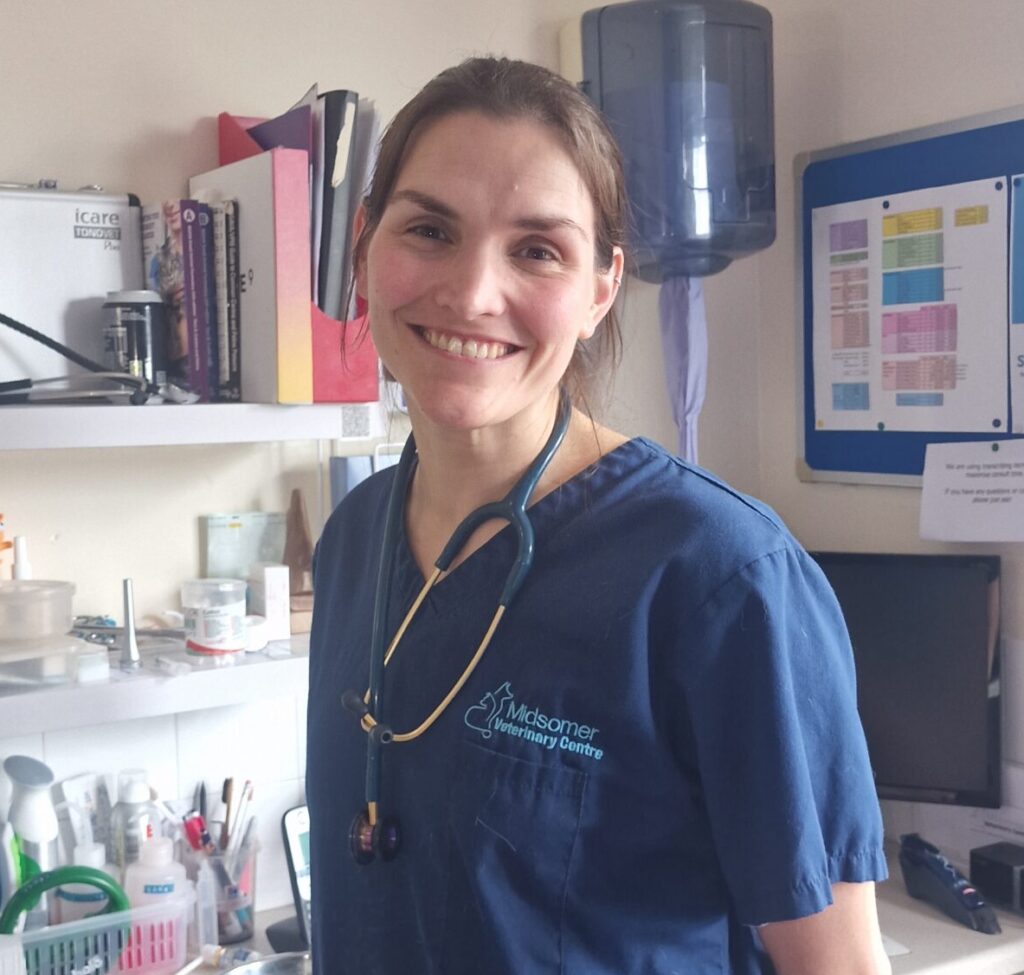
Interested in behaviour therapy for your pet?
Canine Physiotherapy
We offer expert, physiotherapy for dogs of all ages — from active pets to senior companions. Each session includes a thorough assessment, followed by a tailored mix of manual and electrotherapies, plus a personalised exercise plan.
Physiotherapy can be supported by laser therapy within the practice plus referral to local hydrotherapy centres to assist mobility and muscular strength.
Whether your dog is recovering from surgery, managing arthritis, or living with an orthopaedic or neurological condition, we’re here to support their comfort, mobility, and quality of life.
With gentle, evidence-based care, we help your dog move better, feel better, and stay active for longer.
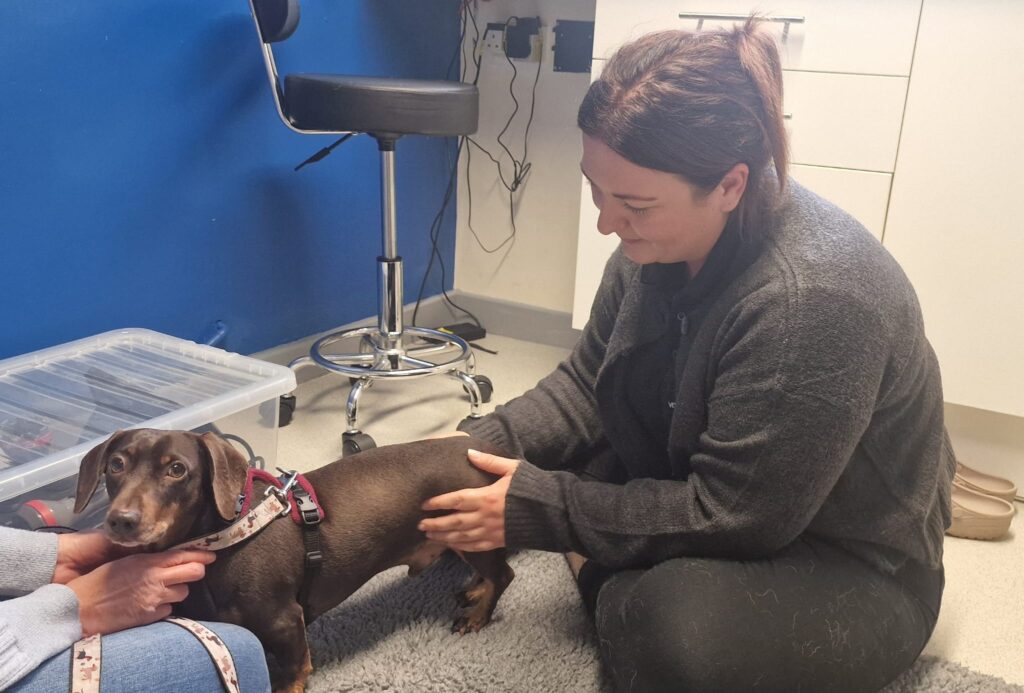
Call us today to on 01761 412132 reserve an appointment with Mia.

Cryosurgery
Cryosurgery allows us to treat smaller skin masses such a sebaceous warts and skin tags without the need for general anaesthetic or sedation by freezing.
- No general anaesthesia:
Suitable masses can be treated within a few minutes, often within the consult room. Effectively treats sun-damaged skin, viral warts, and other benign or low-grade cancerous skin growths.
- Reduced pain and inflammation:
We sometimes use local anaesthetic creams or apply ice to the area before treatment to reduced any discomfort, but we find that most pets tolerate cryothereapy well. No aftercare is normally needed.
- Great in older pets:
Whilst cryosurgery can be used in pets of all ages, we find it especially useful for older pets who may have skin masses that irritate them where avoiding anaesthesia is a priority.
For smaller masses a single treatment is often sufficient but larger masses may require two or more treatments.
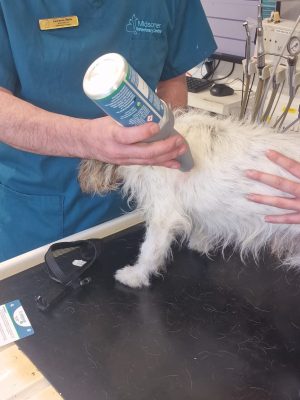
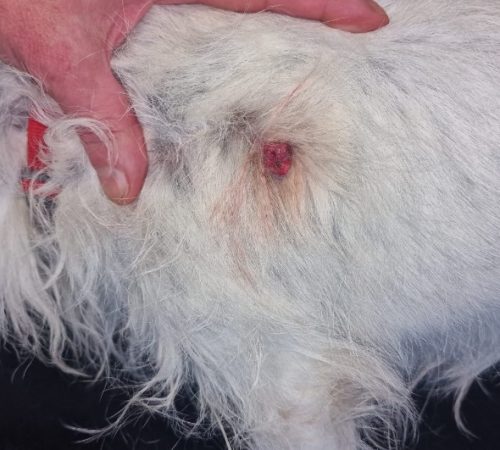
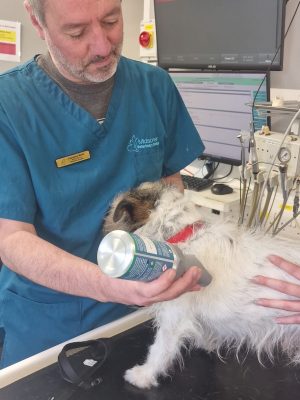
Laser Therapy
Laser therapy is a safe, non-invasive treatment used to reduce pain, inflammation, and promote healing in dogs and cats. We have Class IV laser thrapy that delivers specific wavelengths of light that penetrate deep into tissues, stimulating cellular repair and improving circulation. The “photobiomodulation” effect accelerate the body’s natural healing processes and provides effective pain relief, reducing or avoiding the need for medications.
Laser therapy is especially beneficial for pets suffering from mobility problems such as arthritis, back pain, and nerve-related discomfort. It helps reduce stiffness, improves joint function, and enhances overall mobility, allowing pets to move more comfortably and enjoy a better quality of life.
It is also valuable in managing chronic inflammatory conditions, including otitis (ear inflammation), anal sacculitis, and cystitis (bladder inflammation), by decreasing swelling and improving tissue recovery.
In addition, Class IV laser therapy can significantly speed up healing after surgery, dental procedures, or injury. It reduces post-operative pain, swelling, and infection risk, leading to faster recovery times and improved comfort for your pet.
This gentle, drug-free therapy is well tolerated and can be easily incorporated into your pet’s treatment plan to support long-term health, comfort, and mobility
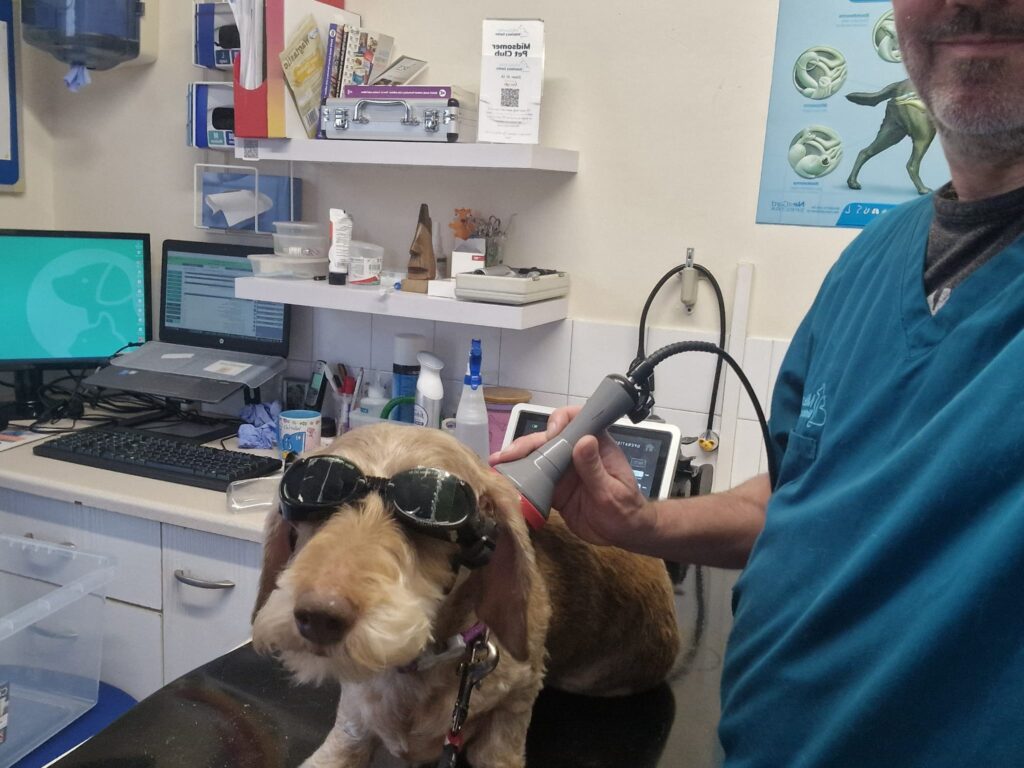
Get 10% off life-stage diets
